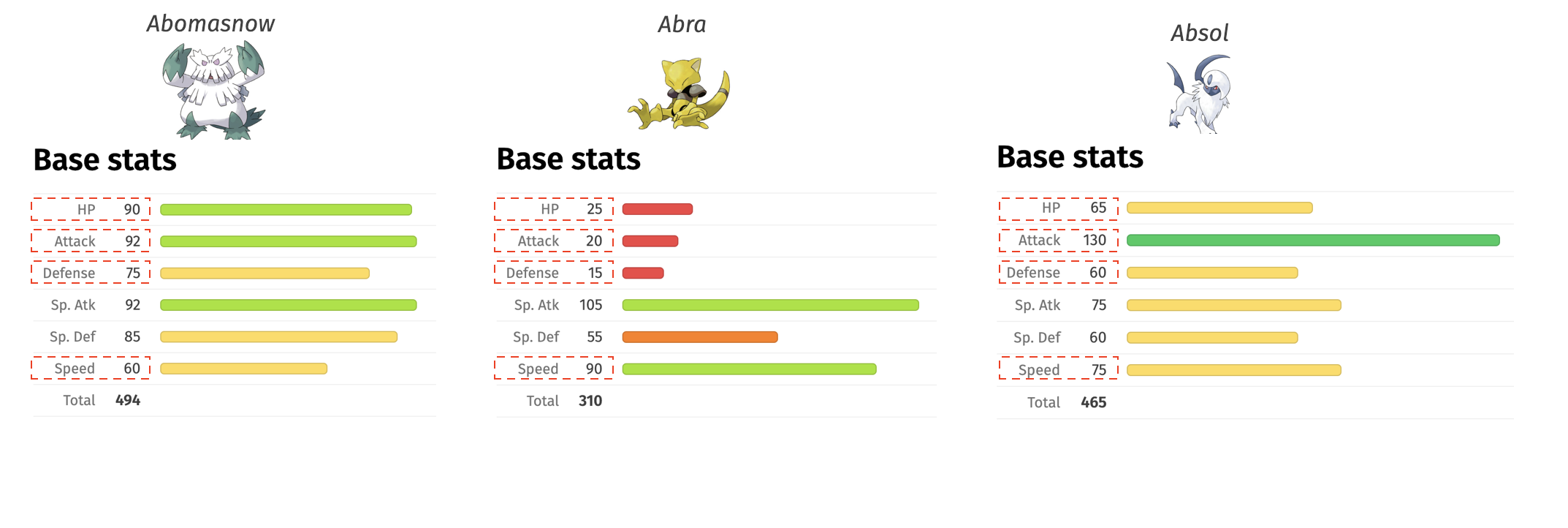Eliminating loops
Writing Efficient Python Code

Logan Thomas
Scientific Software Technical Trainer, Enthought
Looping in Python
- Looping patterns:
forloop: iterate over sequence piece-by-piecewhileloop: repeat loop as long as condition is met- "nested" loops: use one loop inside another loop
- Costly!
Benefits of eliminating loops
- Fewer lines of code
- Better code readability
- "Flat is better than nested"
- Efficiency gains
Eliminating loops with built-ins
# List of HP, Attack, Defense, Speed
poke_stats = [
[90, 92, 75, 60],
[25, 20, 15, 90],
[65, 130, 60, 75],
...
]

# List of HP, Attack, Defense, Speed poke_stats = [ [90, 92, 75, 60], [25, 20, 15, 90], [65, 130, 60, 75], ... ]# For loop approach totals = [] for row in poke_stats: totals.append(sum(row))# List comprehension totals_comp = [sum(row) for row in poke_stats]# Built-in map() function totals_map = [*map(sum, poke_stats)]
%%timeit
totals = []
for row in poke_stats:
totals.append(sum(row))
140 µs ± 1.94 µs per loop (mean ± std. dev. of 7 runs, 10000 loops each)
%timeit totals_comp = [sum(row) for row in poke_stats]
114 µs ± 3.55 µs per loop (mean ± std. dev. of 7 runs, 10000 loops each)
%timeit totals_map = [*map(sum, poke_stats)]
95 µs ± 2.94 µs per loop (mean ± std. dev. of 7 runs, 10000 loops each)
Eliminating loops with built-in modules
poke_types = ['Bug', 'Fire', 'Ghost', 'Grass', 'Water']
# Nested for loop approach
combos = []
for x in poke_types:
for y in poke_types:
if x == y:
continue
if ((x,y) not in combos) & ((y,x) not in combos):
combos.append((x,y))
# Built-in module approach
from itertools import combinations
combos2 = [*combinations(poke_types, 2)]
Eliminate loops with NumPy
# Array of HP, Attack, Defense, Speed
import numpy as np
poke_stats = np.array([
[90, 92, 75, 60],
[25, 20, 15, 90],
[65, 130, 60, 75],
...
])
Eliminate loops with NumPy
avgs = [] for row in poke_stats: avg = np.mean(row) avgs.append(avg)print(avgs)
[79.25, 37.5, 82.5, ...]
avgs_np = poke_stats.mean(axis=1)print(avgs_np)
[ 79.25 37.5 82.5 ...]
Eliminate loops with NumPy
%timeit avgs = poke_stats.mean(axis=1)
23.1 µs ± 235 ns per loop (mean ± std. dev. of 7 runs, 10000 loops each)
%%timeit
avgs = []
for row in poke_stats:
avg = np.mean(row)
avgs.append(avg)
5.54 ms ± 224 µs per loop (mean ± std. dev. of 7 runs, 100 loops each)
Let's practice!
Writing Efficient Python Code

